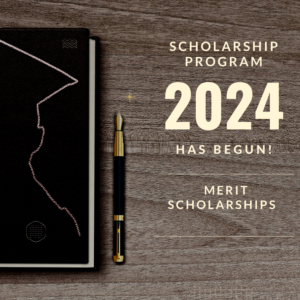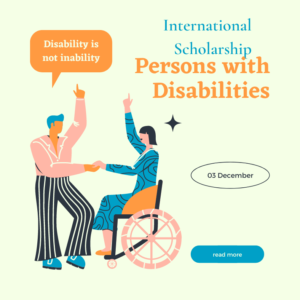10 Essential Tips for Securing PhD Scholarships; The world of PhD research is brimming with intellectual challenges and groundbreaking discoveries. But let’s face it, the financial burden of pursuing a doctoral degree can feel like a formidable mountain range blocking the path to academic dreams. Fear not, aspiring scholar! PhD scholarships offer a golden key, unlocking the door to a debt-free PhD experience. This comprehensive guide equips you, the determined researcher, with 10 essential tips to secure the perfect PhD scholarship and embark on your research journey with financial freedom.
Why Consider PhD Scholarships?
PhD scholarships offer a multitude of advantages for aspiring researchers:
- Reduced Financial Stress: Focus on your research and academic endeavors without the burden of overwhelming student debt.
- Increased Research Focus: Dedicate more time to groundbreaking research without the need for part-time employment to manage living expenses.
- Enhanced Credibility: Securing a prestigious scholarship showcases your academic potential and strengthens your research profile.
Understanding PhD Scholarships
Types of Funding
PhD students have various funding options to support their research and studies. Scholarships, grants, and fellowships are common forms of financial aid. Scholarships are typically merit-based, while grants may be need-based. Fellowships often include additional benefits like research opportunities or mentorship.
Fully funded doctoral programs cover tuition fees and provide a stipend for living expenses. These programs offer financial security to students, allowing them to focus on their research without worrying about finances. Some fully funded programs also include healthcare benefits and travel grants for conferences.
Exploring the differences between scholarships, grants, and fellowships is crucial for PhD students. Scholarships are usually awarded based on academic achievement or specific criteria set by the donor. Grants, on the other hand, may require demonstrating financial need or proposing a research project. Fellowships often involve a competitive application process and provide additional support beyond funding.
PhD vs Doctorate
Differentiating between a PhD and a Doctorate program is essential for prospective students. A PhD (Doctor of Philosophy) is a specific type of doctoral degree that focuses on original research in a particular field. On the other hand, a Doctorate encompasses various types of doctoral degrees beyond the traditional PhD.
When considering which program aligns best with your career goals, it’s important to understand the specific requirements of each. PhD programs typically require writing a dissertation based on original research, while other doctorate programs may focus more on practical applications in professional fields like education or healthcare.
PhD programs are ideal for individuals interested in pursuing careers in academia or research institutions. Doctorate programs, including professional doctorates like MD or JD degrees, cater to those seeking advanced knowledge and skills in specific fields for practical applications.
Scholarship Benefits
Receiving scholarships for PhD studies offers numerous advantages to students. Scholarships can alleviate financial burdens associated with pursuing an advanced degree by covering tuition costs and providing stipends for living expenses. This financial support allows students to focus on their research and academic pursuits without worrying about debt.
The impact of scholarships extends beyond financial assistance; they also play a significant role in academic and professional growth. By receiving recognition through scholarships, students gain credibility in their field of study and enhance their resumes for future career opportunities. Scholarships can also open doors to networking opportunities and collaborations with leading researchers in the field.
Eligibility and Requirements
GPA Criteria
Scholarships for PhD students often have strict GPA criteria that applicants must meet. Maintaining a high GPA is crucial for eligibility, showcasing academic excellence. Different scholarship programs have varying GPA requirements, so it’s essential to research and understand the specific criteria for each application. To meet and exceed these standards, students should prioritize their studies, seek academic support when needed, and stay focused on achieving top grades.
e scholarships may require a minimum GPA, while others look for exceptionally high academic performance. Meeting these requirements demonstrates dedication to academic success and increases the chances of being selected as a fellowship recipient. Students should aim not only to meet but also to surpass the GPA criteria set by scholarship programs to stand out among other applicants. By excelling academically, candidates can showcase their commitment to their field of study and their potential for future contributions.
Strategies such as effective time management, seeking guidance from professors, participating in study groups, and maintaining a consistent study schedule can help students achieve and maintain the required GPA levels for scholarship applications. Moreover, staying organized, setting realistic goals, and prioritizing coursework can contribute to meeting the demanding academic standards set by prestigious scholarship programs.
Fields of Study
Various fields of study offer scholarship opportunities for PhD students, ranging from STEM disciplines to humanities and social sciences. The field of study you choose can significantly impact the availability of scholarships tailored to your academic pursuits. STEM fields like engineering or computer science often have numerous scholarship options due to high demand in these areas. Conversely, niche fields or emerging disciplines may offer specialized scholarships with specific eligibility criteria.
When selecting a field of study for your PhD program, consider researching scholarship opportunities available within that discipline. Understanding which fields attract more funding can help you make an informed decision about your academic path. Exploring interdisciplinary studies or emerging fields may lead to unique scholarship opportunities that align with your research interests.
Specialized scholarships catered towards specific academic disciplines provide targeted financial support to students pursuing advanced degrees in those areas. These scholarships may focus on particular research topics, industries, or career paths within a given field of study. By aligning your research interests with available scholarship programs in your chosen field, you can increase your chances of securing funding for your doctoral studies.
Minority and Female Scholarships
Scholarships designed specifically for minority and female PhD students aim to promote diversity and inclusivity within academia. These scholarships recognize the importance of representation and support underrepresented groups in higher education. By offering financial assistance tailored to the unique challenges faced by minority and female scholars, these programs strive to create a more equitable academic landscape.
Diversity plays a crucial role in scholarship programs as it enriches perspectives, fosters innovation, and promotes equality across various fields of study. Organizations dedicated to promoting diversity through scholarships understand the value of inclusive educational environments where individuals from diverse backgrounds can thrive academically. By providing targeted support for minority and female scholars, these organizations contribute to creating a more diverse and vibrant scholarly community.
Organizations advocating for diversity in academia actively work towards increasing access to higher education opportunities for historically marginalized groups. Through initiatives focused on providing scholarships for minority and female PhD students, these organizations empower individuals facing systemic barriers to pursue advanced degrees in their chosen fields. By supporting diverse scholars through tailored financial aid programs, these organizations champion inclusivity and equity in higher education.
Finding the Right Scholarship
Search Strategies
Scholarship hunting for PhD students can be overwhelming, but with effective strategies, you can simplify the process. Utilize online resources like scholarship databases to broaden your search horizon. Tailor your criteria by focusing on scholarships specifically designed for women in PhD programs.
Fully Funded Programs Exploring fully funded doctoral programs brings a myriad of benefits. These programs cover tuition fees and provide stipends, easing financial burdens for PhD students. Understand the selection criteria and application procedures for these programs to increase your chances of securing funding. Renowned institutions worldwide offer fully funded opportunities for PhD candidates.
Deadline Awareness Meeting scholarship application deadlines is crucial for securing financial aid. Create a timeline that outlines key dates for each scholarship you plan to apply for. Missing deadlines can result in missed opportunities and financial setbacks for PhD aspirants.
Application Process
Stand Out Tips
When applying for a scholarship, it’s crucial to stand out from other applicants. To do this, highlight unique experiences and accomplishments that showcase your individuality. Emphasize how these experiences have shaped your academic journey.
Showcasing your passion and commitment to your field of study is essential. Admissions committees look for candidates who are not only academically strong but also deeply invested in their research area. Clearly articulate why you are passionate about your chosen field.
To make your application memorable, demonstrate how you have made an impact in your community or field of study. Whether it’s through research projects, volunteer work, or leadership roles, provide concrete examples that illustrate your dedication and potential as a scholar.
Required Documents
Scholarship applications typically require several documents to assess the qualifications of applicants. Commonly requested materials include academic transcripts, letters of recommendation, and personal essays. Ensure these documents are well-prepared and reflect your strengths.
Transcripts play a crucial role in demonstrating your academic performance. Make sure they are up-to-date and accurately reflect your achievements throughout your academic career. Letters of recommendation should come from individuals who can speak to your abilities and potential as a researcher.
Crafting a compelling personal essay is vital for showcasing your motivations and aspirations. Use this opportunity to share personal anecdotes that highlight what drives you to pursue a PhD. Tailor each essay to the specific scholarship requirements to increase your chances of success.
Interview Preparation
Preparing for scholarship interviews involves researching common questions that may be asked by the selection committee. Practice articulating your academic goals, research interests, and future plans clearly and concisely. This will demonstrate your preparedness and professionalism during the interview process.
During interviews, emphasize your communication skills by expressing yourself clearly and confidently. Articulate how pursuing a PhD aligns with your long-term career objectives and how the scholarship will help you achieve them. Show enthusiasm for discussing your research interests and contributions to the academic community.
Demonstrate a genuine interest in engaging with the scholarship program by asking thoughtful questions about the institution or organization offering the award. This shows that you have done your homework and are genuinely interested in being part of their academic community.
Financing Your PhD Journey
Cost Breakdown
Understanding the financial aspects of embarking on a PhD journey is crucial for prospective students. Tuition fees constitute a significant portion of the expenses, varying based on the institution and program. living expenses such as accommodation, food, and transportation should be factored in.
When considering the cost breakdown for a PhD program, it’s essential to include research materials in your budget. These may encompass books, lab equipment, software subscriptions, and conference attendance fees. Managing these costs efficiently is key to ensuring a smooth academic journey.
To effectively manage your finances during your PhD studies, consider creating a detailed budget that encompasses all expenses. Explore strategies such as seeking part-time employment, applying for research assistant positions, or utilizing campus resources like writing centers or libraries to minimize costs.
Timeline Planning
Creating a well-structured timeline is vital when navigating the complexities of applying for PhD scholarships. Begin by allocating time for researching scholarships, understanding their requirements, and identifying suitable options that align with your research interests.
As you progress through the application process, dedicate ample time to preparing documents such as transcripts, recommendation letters, and research proposals. Setting aside specific periods for each task can help streamline the process and reduce last-minute stress.
Staying organized and adhering to your application timeline are critical components of a successful scholarship application. By breaking down tasks into manageable steps and setting deadlines for each milestone, you can ensure that you submit high-quality applications within the specified deadlines.
Additional Funding Options
In addition to traditional scholarships and grants, exploring alternative funding sources can provide additional support during your PhD journey. Part-time work opportunities within academia or industries related to your field of study can offer valuable experience while supplementing your income.
Research assistantships present another avenue for securing funding while gaining practical research experience. These positions often come with stipends or tuition waivers that can significantly offset the financial burden of pursuing a PhD program.
Diversifying your funding portfolio by considering student loans as a last resort option can provide additional flexibility in managing unforeseen expenses or emergencies during your studies. However, it’s essential to weigh the long-term implications of taking on student debt before committing to this financial route.
Special Focus Areas
Business and Tech
Discover scholarship opportunities tailored for business and technology-related PhD programs. Industry-specific grants and fellowships are available for aspiring professionals in these fields. The unique funding landscape for doctoral candidates in business and technology is diverse, offering various financial support options.
Exploring scholarship opportunities in business and technology can lead to significant advancements in research and innovation. These specialized funding sources cater to individuals pursuing advanced degrees in areas such as management, entrepreneurship, information technology, and more. Understanding the nuances of these grants and fellowships is crucial for doctoral candidates seeking financial assistance.
-
Pros:
-
Tailored funding options
-
Support for research in cutting-edge fields
-
-
Cons:
-
Intense competition for certain scholarships
-
Specific eligibility criteria may limit accessibility
-
Humanities and Social Sciences
Explore a plethora of scholarships, grants, and fellowships available for humanities and social sciences PhD students. Funding opportunities cover research in diverse disciplines like arts, literature, history, sociology, anthropology, and more. Specialized financial aid options cater to scholars pursuing advanced studies in these areas.
The availability of scholarships specific to humanities and social sciences encourages academic pursuits in fields that contribute significantly to society’s cultural understanding. These funding sources support research projects addressing critical societal issues, historical inquiries, artistic endeavors, and sociological studies. Aspiring scholars can benefit from a range of financial assistance programs tailored to their academic interests.
-
Key Information:
-
Funding available for a wide array of disciplines
-
Support for research with societal impact
-
Nursing and Psychology
Delve into the realm of funding opportunities designed for PhD students specializing in nursing and psychology. Financial support is readily accessible for research endeavors focusing on healthcare practices, mental health studies, behavioral sciences, and related disciplines. Scholarships, grants, and fellowships specifically tailored to professionals in nursing and psychology fields offer vital assistance.
The availability of scholarships dedicated to nursing and psychology underscores the importance of advancing knowledge in critical healthcare sectors. These funding avenues facilitate groundbreaking research projects addressing mental health challenges, nursing practices improvement, patient care innovations, psychological interventions development, among others. Doctoral candidates can leverage these financial resources to pursue impactful studies.
Making the Most of Your Scholarship
Networking Opportunities
Networking is crucial for exploring potential funding sources during your PhD journey. By connecting with academic advisors, industry professionals, and alumni, you can uncover valuable leads for financial support. Building strong relationships within your academic and professional community can open doors to various funding opportunities.
Engage in networking events, conferences, and seminars to expand your connections and discover new avenues for funding. Utilize online platforms like LinkedIn to connect with experts in your field and explore potential collaborations. Stay proactive in reaching out to individuals who can offer guidance and support in securing scholarships and grants.
Establishing a strong network not only helps in finding financial assistance but also provides mentorship and guidance throughout your PhD studies. By leveraging these connections, you can gain insights into different funding options tailored to your research interests and career goals.
Academic Development
Scholarships, grants, and fellowships offer more than just financial aid; they provide opportunities for academic growth. Take advantage of funded programs to enhance your research skills, teaching experience, and industry knowledge. Participating in workshops, seminars, and research projects can broaden your expertise.
Academic development initiatives supported by scholarships can significantly enrich your PhD experience. These programs often offer mentorship opportunities, access to cutting-edge resources, and exposure to interdisciplinary research areas. Embrace these opportunities to strengthen your academic profile and contribute meaningfully to your field.
By focusing on academic development through funded initiatives, you can deepen your knowledge, expand your skill set, and establish yourself as a well-rounded researcher. Embrace the challenges and learning experiences that come with scholarship programs to grow academically and professionally.
Career Pathways
Scholarships play a pivotal role in shaping your future career trajectory. They not only support your academic pursuits but also impact the opportunities available to you post-PhD completion. Consider how securing financial support for your studies can influence the direction of your career.
Explore how scholarships, grants, and fellowships align with your long-term career goals. Evaluate the potential benefits of each funding opportunity on your professional growth and consider how they can enhance your marketability in various industries. Secure funding strategically to pave the way for diverse career pathways.
Securing financial support for your PhD studies can serve as a stepping stone towards diverse career opportunities across academia, industry, research institutions, or entrepreneurship ventures. Reflect on how scholarships can empower you to pursue your desired career path while equipping you with the necessary skills and experiences.
Summary
The journey of securing a scholarship for PhD students involves understanding the options available, meeting eligibility criteria, navigating the application process, and strategically managing finances. Special focus areas can provide additional opportunities for those seeking unique avenues for their research. Making the most of a scholarship requires dedication and wise planning to maximize the benefits and opportunities it offers. Remember, thorough research and attention to detail are crucial in this competitive landscape.
Frequently Asked Questions
### What are the general eligibility criteria for PhD scholarships?
To be eligible for most PhD scholarships, candidates typically need to have a strong academic background, a well-defined research proposal, and meet specific criteria set by the scholarship provider. Factors like publications, work experience, and letters of recommendation may also play a role.
How can one find the right PhD scholarship opportunities?
One can find suitable PhD scholarship opportunities by exploring university websites, online scholarship databases, academic journals, and professional organizations related to their field of study. It is essential to carefully review the eligibility criteria, application deadlines, and required documents for each scholarship.
What is the typical application process for PhD scholarships?
The application process for PhD scholarships usually involves submitting an online application form along with supporting documents such as academic transcripts, CV/resume, research proposal, letters of recommendation, and proof of language proficiency (if applicable). Some scholarships may also require applicants to attend interviews or provide additional materials.
How can applicants finance their PhD journey apart from scholarships?
Apart from scholarships, applicants can explore other funding options for their PhD journey such as research assistantships, teaching assistantships, grants, fellowships, part-time work opportunities, student loans, and crowdfunding platforms. It is advisable to create a comprehensive financial plan that considers all possible sources of funding.
Are there any special focus areas or niche scholarships available for PhD students?
Yes, there are niche scholarships available for PhD students focusing on specific research areas or underrepresented fields. These specialized scholarships may target disciplines like STEM (Science, Technology, Engineering, Mathematics), social sciences, humanities, healthcare sectors or cater to specific demographics such as women in STEM or minority groups.
-





